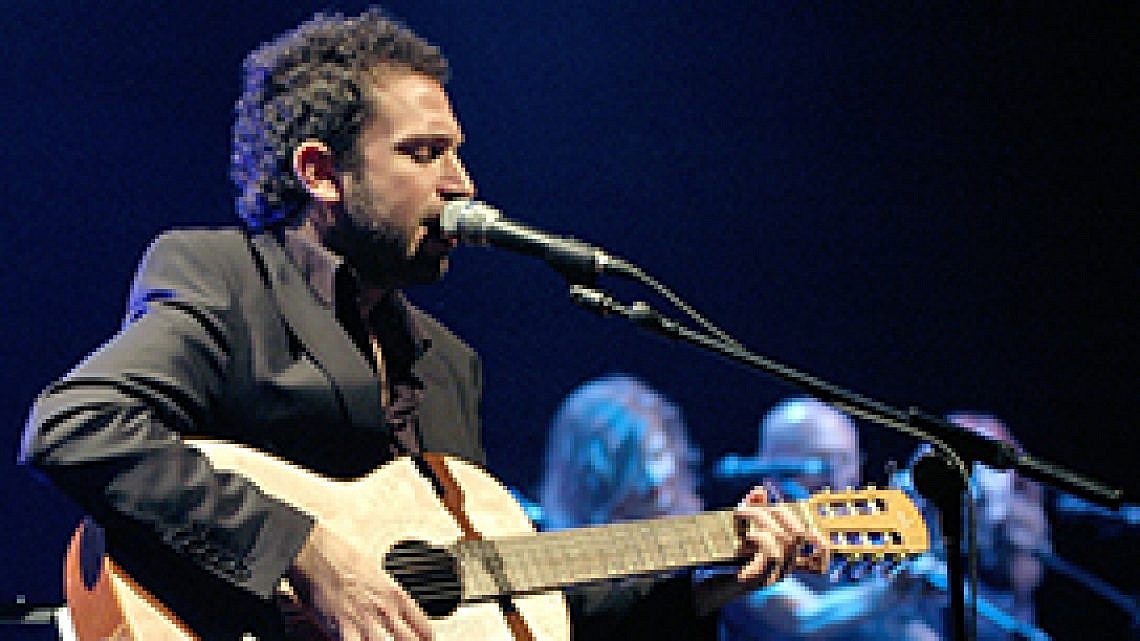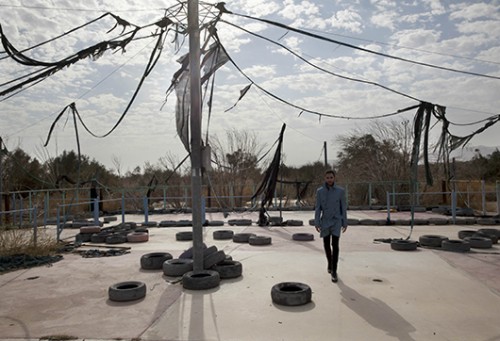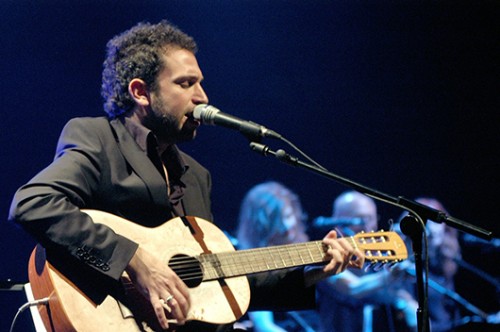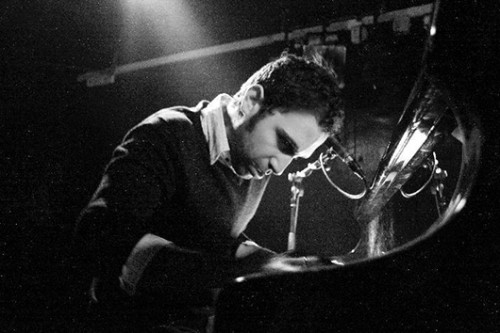Metamorphosis of a Pianist
At age 19, Shlomi Shaban went to London to study classical piano and came back with different musical ambitions. The Israeli pop and rock music scene couldn’t be happier

When the chronicles of Israeli popular music are written, Shlomi Shaban will be inscribed as one of the most important and compelling artists of the early third millennium. But his story is one of quality versus quantity. There are those who contend that Shaban has put out “only” four studio albums in the last 14 years. But, their high quality and heavy play on the radio, along with his presence in the performance industry, plus dozens of productions, dominant roles in projects and other musical initiatives in recent years only testify to his centrality on the local rock front and his inspirational influence on the scene, both artistically and aesthetically. Shaban, now 37, is sharp and intelligent in his writing, adventurous and innovative in his music and thrilling in his performances – and mostly, an unparalleled performer.

He has transformed the task of performance into an art form, as witnessed by his newest stage show “Targil B'hitorrerut,” after his fourth album of the same name. It's a feast for the eyes and ears, of clever texts, diverse music, electrifying sound and stunning video-art.
Is it true that as a child you wanted to be a classical pianist?
“I thought I wanted to be a piano soloist but it turned out that I was wrong. There were a lot of role models, the first of which was Arthur Rubinstein. His playing touched my heart in the deepest way, as did his very colorful image. I read his autobiography at a very young age and it really influenced me. 'Unconditional' love of life, as he put it, follows me to this day. That's not a simple challenge.”
After studies at the Talma Yellin School of the Arts, Shaban headed for London and additional piano training. On his return home, he was changed, having made up his mind that pop and rock were his chief means of self- expression. “The first ones to crack the classical wall were (the late singer- songwriter) Meir Ariel and Eran Tzur on the local side and people like Bob Dylan, Leonard Cohen, Lou Reed and Tom Waits internationally. I began listening to them as a music student in London out of a deep loneliness, and they became my best friends. I have been writing songs since I was 10, but at 19 I began listening to these singer-songwriters almost as an act of survival – deciding that was the path I wanted to follow. Their ability to tell a rich and deep story in a four-minute song turned my world upside-down.”

His first self-titled album,“Shlomi Shaban” in 2000, was a sensation. “The album was very warmly received on the radio and won prizes, but didn't sell a lot of copies in real time. That happens a lot, but at the time I wasn't prepared for the contradiction between radio success combined with small audiences at performances. I can't now call it a failure, as I did an interview then, because that album gave me exposure to a lot of people very quickly and I sing lots of songs from it to this day.”
Realistically speaking, what is the balance of fact vs. fiction in your written music?
“They're based on personal experience. But – and it's a big but– the minute a song is written, it turns into fantasy the very next day. Some songs are entirely a fruit of the imagination and ironically they sound entirely factual. It's very deceptive.”
Are you doing Fusion? Integration? Synergy? What would you call your style of music?
“Hmmmm…All the answers are incorrect. I write songs. Sometimes there is a kind of fusion between the world of popular music and classical.”
Are you pleased with your output, or would you like to do more?
I'm not at all satisfied with my discographic production but I'm satisfied with the volume of stage projects I've been involved in. I hope the balance will even out in the future.”
?Of the many roles that you play, which is your favorite
In the final analysis, it's writing and performing. At times I feel that surprising and exciting things are really happening. There are times when a song begins to take its own direction and you're only drawn along, but know you're headed in the only possible direction. Those are really great moments. Sometimes I shout out alone in a room from the excitement
What is it about performing songs in public before you record them?
“I perform some songs before recording them, not all. I like to keep some completely fresh. It's no fun going into the studio without that mystery of a song that no one other than you knows. Some are written in the process, or very close to recording. “Targil Bhitorrarut” was written just before going into the studio. I worked on it all the time I was on vacation, played a loop of it in my head. I changed a word, added a verse, and in the end it became the album's title song. There are no rules.”
Do today's performances still promote albums, as they once did?
“From a purely commercial standpoint, in today's reality an album promotes a performance. People buy fewer albums but still go to performances. The center of gravity is clear. Artistically, the situation is opposite for me. The album is the heart of the composition. It's the material, the center from which the arms or the horns extend and is therefore so important and dear.”
Why is it that you don't write for others?
“I don't know. I simply write so slowly that when I do have a song, I'm not interested in giving it and I'm not sure someone else will want it. The songs are written for me and it's not sure if they suit other singers. But when I'm called on for a special project I usually hesitate.”

If you weren't a musician, what would you be?
“I think I'd still be a writer. Or any profession that includes creativity and words. I recently edited an edition of Time Out Tel Aviv (Hebrew edition) on a one-time basis, and it was a great pleasure. I could do that, even though it's very hard work.”
And if not a pianist?
I'm very happy to be a pianist. For a very long time I performed only with piano and didn’t miss a band. The piano is a percussion instrument, but in reality includes almost all the imaginable orchestral instruments. It all depends on your imagination. It can be a harp, a flute or an electric guitar at full distortion. The possibilities are endless, which can't be said about, say… a trombone or a violin.”
Do you see yourself having an international career in the future?
Not really. I write in Hebrew. But recently, there are all kinds of interesting ideas that could end up in a possible international project. Still, it's not about making a career but about the idea of touching people through other languages and cooperating with artists who aren't Israeli.
Where are we more likely to meet you in the future: as a composer of music for dance, theater, television, cinema or for concert music?
“I'm open to almost any possibility but the greatest attraction is to the dance hall and the most open one to the concert hall.
What do you find to be your greatest ambition?
“To be more and more creative. Historically, that has no chance. Generally artists and people tend to dry up slightly as time passes. But there are exceptions. I hope to cheat the system with variety. If you don't try to repeat yourself and are open for creativity at all angles, you have a great chance of staying fresh.”

